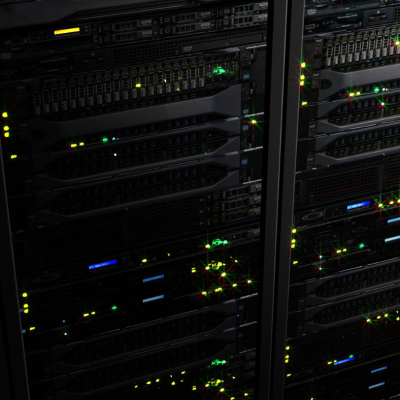When it comes to hosting your website or application, the decision to choose a dedicated server is a significant one. A dedicated server offers unparalleled performance, control, and security compared to other hosting options, but it’s not a one-size-fits-all solution. Before you make the investment, here are key factors you need to consider to ensure you’re choosing the right dedicated server for your needs.
1. Understanding Your Requirements
Before diving into the technical details, it’s crucial to assess your specific needs. Ask yourself:
- What type of website or application are you hosting?
- How much traffic do you expect?
- What level of performance do you require?
- Do you need specialized software or configurations?
Understanding the demands of your project will help you determine the server specifications you need, such as CPU power, RAM, storage type, and bandwidth.
2. Processor (CPU) Performance
The CPU is the brain of your server. It processes the tasks and operations required to keep your site running smoothly. If you’re running a resource-intensive application, such as a high-traffic website, database server, or gaming server, you’ll need a powerful CPU. Look for servers with multi-core processors from reliable brands like Intel Xeon or AMD EPYC.
3. RAM (Memory)
RAM is another critical component of a dedicated server. It temporarily stores data that your server’s CPU needs to access quickly. The more RAM you have, the better your server can handle multiple tasks simultaneously. For websites with complex databases or applications, a minimum of 16GB of RAM is often recommended, but this can vary depending on your specific needs.
4. Storage Options: HDD vs. SSD
When choosing storage for your dedicated server, you generally have two options: HDD (Hard Disk Drive) and SSD (Solid State Drive).
- HDD: Offers larger storage capacities at a lower cost, making it suitable for storing large amounts of data.
- SSD: Provides faster data access speeds, improving load times and overall server performance, especially under heavy workloads.
If speed is a priority, especially for applications where quick data access is crucial, an SSD is the better choice.
5. Bandwidth and Data Transfer
Bandwidth determines how much data can be transferred to and from your server over a given period. If you expect high traffic or need to serve large files, ensure your server offers sufficient bandwidth. Some providers offer unmetered bandwidth, which can be advantageous if your traffic levels are unpredictable.
6. Security Considerations
Security should be a top priority when choosing a dedicated server. Ensure the hosting provider offers robust security features, such as:
- DDoS protection: To safeguard against distributed denial-of-service attacks.
- Firewall management: To monitor and block unauthorized access.
- Regular backups: To ensure data recovery in case of loss or corruption.
- SSL certificates: To secure data transmission.
Additionally, consider whether you need advanced security options, such as intrusion detection systems (IDS) or compliance with specific regulations (e.g., GDPR, HIPAA).
7. Managed vs. Unmanaged Servers
Decide whether you need a managed or unmanaged dedicated server:
- Managed Servers: The hosting provider handles server maintenance, software updates, security patches, and technical support. This option is ideal if you lack the technical expertise or time to manage the server yourself.
- Unmanaged Servers: You’re responsible for all aspects of server management. This option offers more control and flexibility but requires a higher level of technical knowledge.
8. Scalability
As your business grows, your server needs may change. Look for a dedicated server provider that offers scalability options, allowing you to upgrade your server’s resources (e.g., CPU, RAM, storage) without significant downtime or hassle.
9. Data Center Location
The physical location of the data center where your server is housed can impact your website’s performance. Choose a data center that is geographically close to your primary audience to reduce latency and improve load times. Additionally, consider the data center’s reliability, including its power redundancy, cooling systems, and security measures.
10. Pricing and Contract Terms
Finally, consider the pricing structure and contract terms of the dedicated server. While it’s tempting to go for the cheapest option, ensure that the server meets your performance and security needs. Additionally, be aware of any long-term contracts or hidden fees. Some providers offer flexible billing options, such as monthly or annual payments, with the ability to upgrade or cancel at any time.
Conclusion
Choosing a dedicated server is a critical decision that can significantly impact your website or application’s performance, security, and scalability. By carefully assessing your needs and considering factors such as CPU performance, RAM, storage, bandwidth, and security, you can select a server that aligns with your goals. Whether you opt for a managed or unmanaged server, ensure that your choice supports future growth and provides the reliability your business requires.
Investing time in selecting the right dedicated server upfront can save you from potential headaches and ensure that your online presence remains robust and responsive as your business evolves.
One Dollar Web Host specializes in Web Hosting, Cloud Solutions, and Dedicated Servers all supercharged by the power of the latest technology backed by amazing customer service. At One Dollar Web Host, we understand the dynamic needs of modern businesses and the critical role of high performance for your online business presence.
Our mission is to empower your business with affordable web hosting solutions backed by 100% reliability. Whether you’re a startup, a small business, a growing enterprise, or a large corporation, our solutions are tailored to meet the most demanding requirements. Our state-of-the-art data centers are equipped with the latest technology to ensure maximum uptime, scalability, and security.

